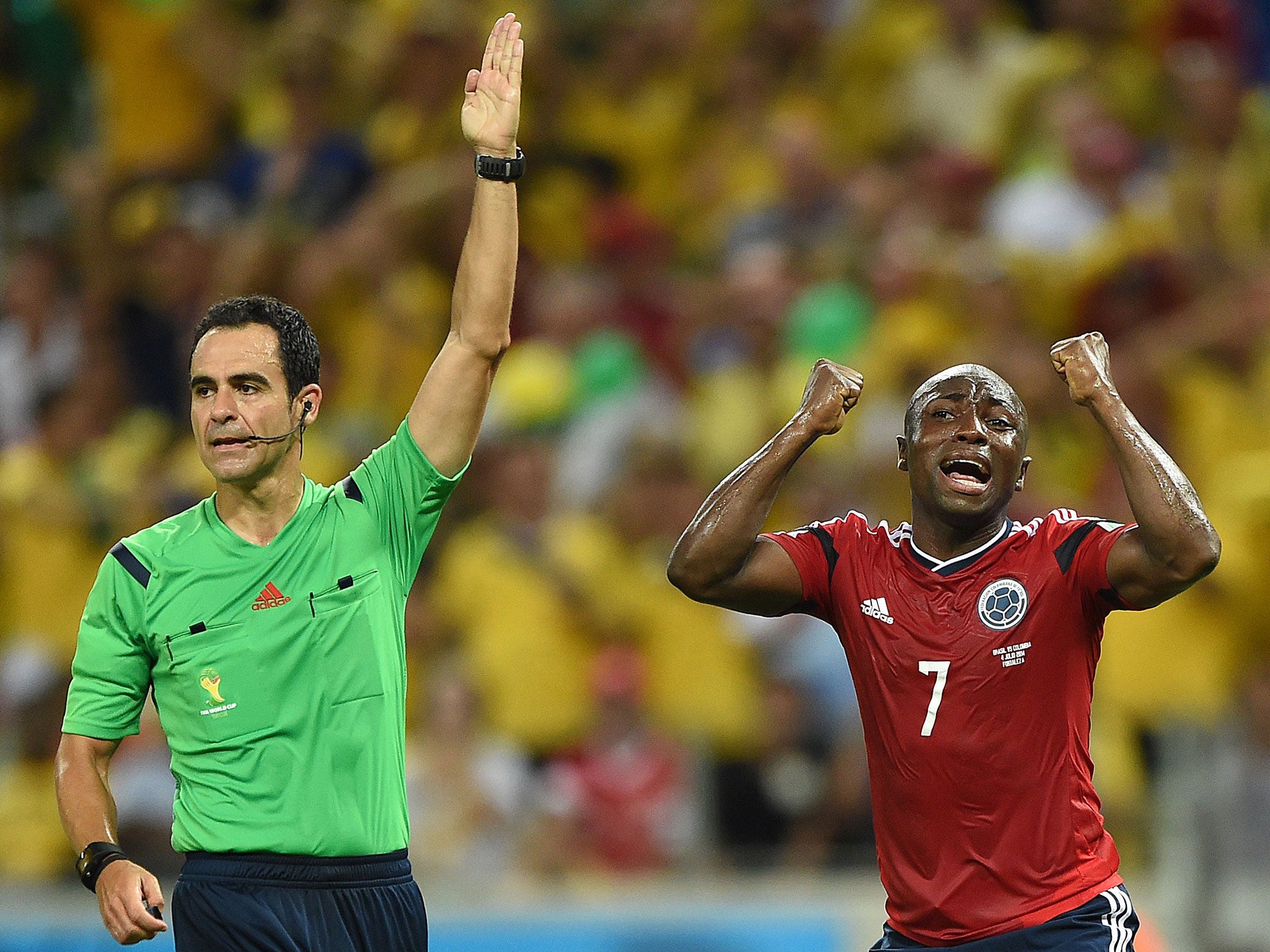Neymar injury: Fifa to blame for thuggery which flattened Brazil forward
This has hardly been a World Cup of shrinking violets

You reap what you sow. For Fifa and Luiz Felipe Scolari that is the grim reality of Neymar’s departure, in agony on a stretcher, from this World Cup.
The referees in Brazil have clearly been given instructions to let the game flow and to limit red and yellow cards. Scolari took advantage of this leniency in the quarter-final against Colombia, instructing his players to neutralise the threat of James Rodriguez, hitherto the tournament’s star, by roughhouse methods.
After referee Carlos Velasco Carballo allowed Fernandinho, in particular, to kick Rodriguez with impunity Colombia responded in kind. In this fetid atmosphere Neymar paid a terrible price.
The culprit, Juan Camilo Zuniga, is in the dock, but Scolari is equally to blame. Brazil’s approach, one veteran observer of the country’s football observed on Friday, was reminiscent of Scolari’s unlovely Gremio team of the 1990s.
Carballo is also at fault but the guiltiest party is Fifa. It is the governing body which sets the tone and, after the brutality that scarred the last World Cup final, when Howard Webb’s attempt to let the game flow and keep 22 players on the pitch backfired, it should have known better. It did once. Back in the early 1990s, when Sepp Blatter and Michel Platini still put the good of the game ahead of their own personal aggrandisement, the pair combined to clean up the sport after the grim tableaux of Italia ’90.
Neymar's best and worst moments of the 2014 World Cup
Show all 9That tournament began with the spectacle of Cameroonian defenders crudely hacking at Argentina’s Claudio Caniggia. It finished with a nine-man Argentina side beaten by a West German penalty won – to global relief – by a dive.
After this, and aware of the injuries suffered in previous years by the likes of Marco van Basten and Diego Maradona, Blatter and Platini cracked down. The tackle from behind was outlawed and, aided by video evidence, the thugs were pushed into hibernation.
It took time. Yellow cards per match at a World Cup had averaged 2.56 in 1986, rose to 3.71 in 1990 and 4.25 four years later. They peaked in 2006 (5.39). Red cards followed a similar pattern as defenders had to find fairer ways to stifle talent. In this environment the likes of Lionel Messi, and indeed, the tiki-taka of diminutive Spain flourished.
Now, however, the merchants of menace are back. At 2.89 and 0.17 respectively the average number of yellow and red cards per game is the lowest since 1986. In eight of the 60 matches only one yellow card has been shown.
Yet this has hardly been a World Cup of shrinking violets. Honduras and Ecuador used physicality to make up for a lack of ability. Brazil and others have less excuse.
Indeed, Brazil’s games, perhaps because of the pressure-cooker atmosphere, have been notably physical. It has not been one-way: Mexico dished out some old-fashioned reducers and Chile were happy to mix it as Webb, again, sought to let the game flow. Many players, from Diego Godin halting Daniel Sturridge with a forearm to Junior Diaz clattering Arjen Robben one time too many, have been spared by referees’ reluctance to give out a second yellow.
It would be wrong to suggest the tournament has been violent. For brutality look at 1966, 1978, 1990 and others. Many games have been open and fluid, and there have been some good advantages played (Carballo played one when Neymar was crunched), but, too often the flair players have been stopped by bruising means and a young man’s dreams have been shattered because of it.
Subscribe to Independent Premium to bookmark this article
Want to bookmark your favourite articles and stories to read or reference later? Start your Independent Premium subscription today.

Join our commenting forum
Join thought-provoking conversations, follow other Independent readers and see their replies